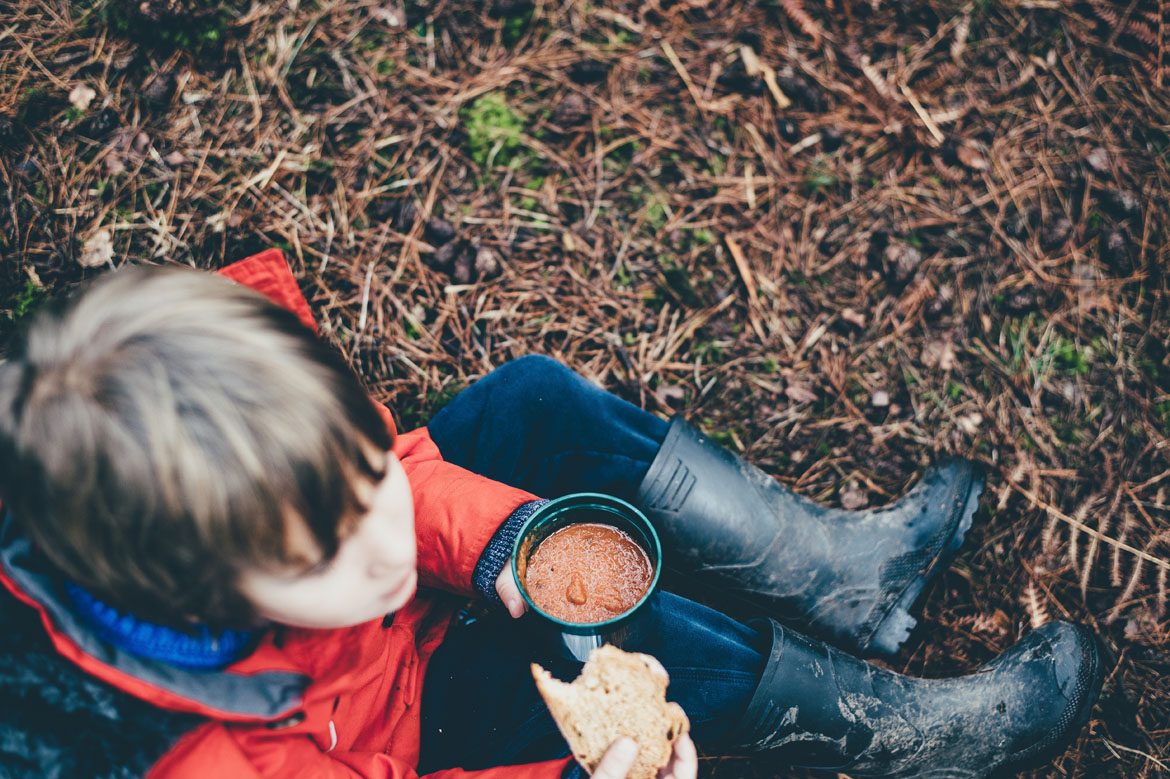By Hannah Schenker
As the days grow shorter, colder and wetter, it is tempting and natural to encourage children to play more indoors than out. We tend to assume that playing outside – getting cold and wet – will lead to our kids getting sick: catching colds from being cold. The reality is, being outside in the fresh air, moving their bodies and interacting with nature is far more beneficial to their health. So wrap them up warm and send them outside – just like our own parents did with us.
Being in the natural world helps children to build immunity. Coming into contact with germs, bugs, animals and bacteria outdoors helps to strengthen their immune systems (read more about beneficial microbes HERE). Indoor heating and venting systems mean the bacteria and viruses you want to avoid, like colds and flu and other contagious illnesses, are easily passed around from child to child. Children may well get runny noses from playing outdoors, but it is less likely to be the mucky green kind from sickness, but a regular dribble from the warmth of the body meeting the cold temperatures outdoors.
Instead of sitting around indoors – they could be running, climbing, jumping, skipping, crawling, reaching, tugging…using their bodies, their cardiovascular system, raising their heart rate and getting the blood pumping. Children need movement for their health and wellbeing. Incorporating plenty of movement into their days, outdoors in the fresh air, will help with their development of fine and gross motor skills, plus they will be getting more vitamin D which is vital for strong bones and healthy immune systems. Being physically active will help prevent childhood obesity and will also set them in good stead for healthy sleep.
Jon Henley writes in The Guardian:
Free and unstructured play in the outdoors boosts problem-solving skills, focus and self-discipline. Socially, it improves cooperation, flexibility, and self-awareness. Emotional benefits include reduced aggression and increased happiness. “Children will be smarter, better able to get along with others, healthier and happier when they have regular opportunities for free and unstructured play in the out-of-doors,” concluded one authoritative study published by the American Medical Association in 2005.
Not only that, being outside in different weather conditions will teach your child about the changing seasons, the changing weather patterns, and encourage resilience in the face of changing conditions. They will feel wind, rain, possibly even snow depending on where you live, rather than just sunshine which is what most of us deem acceptable to play in.











